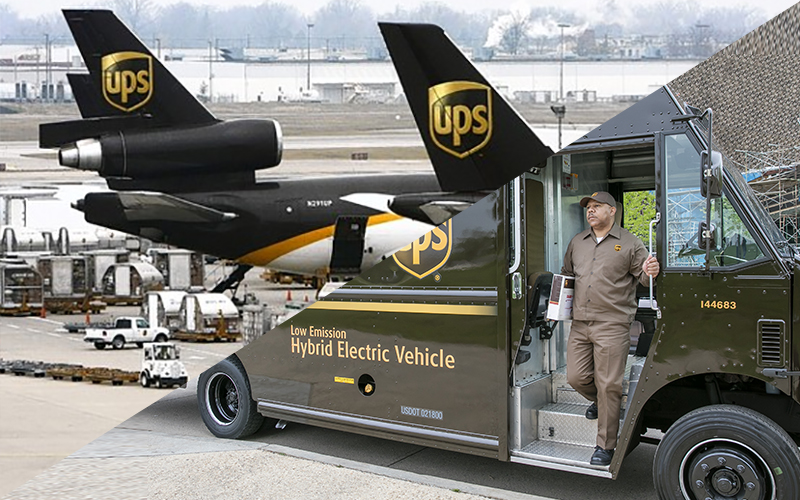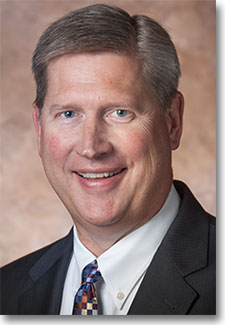UPS Expands Worldwide Express Plus, Adds 200 Hybrid Electric Vehicles to Alternative Fuel Fleet

Earlier this week, UPS announced it has expanded its UPS Worldwide Express Plus earliest morning package service to an additional 28 countries, as well as intending to add 200 new hybrid electric delivery trucks to its alternative fuel and advanced technology fleet.
The expansion of the UPS Worldwide Express Plus earliest morning package service is part of the UPS Worldwide Express service, which provides customers with guaranteed delivery on the next possible business day by 10:30 a.m., 12 noon, or 2 p.m., based on destination.
UPS said individuals and companies of varying sizes can use it, but it is geared towards ones with time-sensitive international shipment and is available in 65 countries that make up 91 percent of global GDP.
The UPS Express Plus service offers guaranteed delivery on the next business day as early as 8 a.m., depending on the destination, said UPS.
UPS Worldwide Express Plus is geared towards various types of shippers, including automotive, healthcare, and retail, for urgent shipments.
And through this week’s announced expansion of the service to 28 new countries, as well as enhancing service to cover postal codes in 25 existing countries, it said shippers are able to reach the top 20 global economies earlier than ever before.
In the 25 existing countries, UPS said that shippers can now reach more customers in several global business centers, while not being limited to only the largest cities, while also making UPS Worldwide Express Plus available in another 3,000 postal codes in the United Kingdom and another 2,000 postal codes in Canada.
“Companies that require spare parts quickly to keep operations running, and healthcare customers shipping emergency products rely on the speed and dependability of the service,” said Jim Barber UPS International President, in a statement.
“With this latest expansion, the coverage area comprises nearly 90% of the global gross domestic product and nearly 90% of global real imports.”
UPS Expands Alternative Fuel Fleet
UPS also announced this week it intends to add 200 new hybrid electric delivery trucks to its alternative fuel and advanced technology fleet, which have the same 2-cylinder engine and E-GEN chassis as the 125 vehicles it announced earlier this year.
Equipped with lithium ion batteries and a range extender engine, UPS said these trucks will deliver significant fuel economy equivalency gains, approximately four times the fuel economy of a gasoline powered vehicle. And it added that a cloud-based, real time telematics performance monitoring system provides feedback for energy monitoring and route efficiency.
The trucks are manufactured by Workhorse Group, Inc. and will be deployed beginning in January 2017 starting in Arizona, Texas, Nevada, Mississippi, Alabama, Georgia and Florida, and, possibly in other states as well.
“The improvements in these new package cars came from real-world experience in our alternative fuel Rolling Laboratory, which earlier this year hit a 1 billion miles driven milestone,” said Mark Wallace, UPS senior vice president global engineering and sustainability.
“We are committed to developing alternative fuel vehicles that lessen our impact on the environment and reliance on petroleum based fuels - that effort is helping to transform markets and communities.”
UPS operates one of the largest alternative fuel and advanced technology fleets in the U.S. In addition to hybrid electric vehicles, the company’s fleet includes all-electric, hydraulic hybrid, compressed natural gas (CNG), liquefied natural gas (LNG), propane and light-weight fuel-saving composite body vehicles.
In addition to its use of alternative vehicles,UPS uses millions of gallons of lower carbon footprint renewable diesel and renewable natural gas (RNG) in its fleet each year.
Using its “Rolling Laboratory” approach, UPS deploys more than 7,200 low-emission vehicles and achieved its goal of driving 1 billion miles with the alternative fuel fleet in August 2016.
The New FedEx Freight CNG Fleet
FedEx Freight, a wholly owned subsidiary of FedEx Corp celebrated the addition of a compressed natural gas (CNG) tractor fleet and fueling station to their expanded Oklahoma City Service Center.
 FedEx chairman and CEO Frederick W. Smith and FedEx Freight President and CEO Michael Ducker were joined by Oklahoma Governor Mary Fallin, Congressman Steve Russell, Clean Energy co-founder T. Boone Pickens, and CEO and President of Clean Energy Andrew J. Littlefair.
FedEx chairman and CEO Frederick W. Smith and FedEx Freight President and CEO Michael Ducker were joined by Oklahoma Governor Mary Fallin, Congressman Steve Russell, Clean Energy co-founder T. Boone Pickens, and CEO and President of Clean Energy Andrew J. Littlefair.
FedEx Freight has purchased more than 100 CNG tractors, and has contracted with Clean Energy Fuel Corp to design, build and maintain the CNG fueling station in Oklahoma City. The new fueling station provides fleet efficiency through two different methods - a four-lane “fast fill” station and a “time fill” station which has six zones and 18 hoses. In time-fill applications, drivers connect their vehicles to an automated system where they are fueled over an extended period of time, typically overnight. The fueling station is estimated to dispense approximately 2.5 million gasoline gallon equivalents (GGEs) per year.
The Oklahoma City Service Center is part of the FedEx Freight network of more than 350 facilities. It is the first service center in the FedEx Freight network of facilities to have a fleet of compressed natural gas (CNG) tractors and a CNG fueling station to service the fleet.
The FedEx Freight CNG fleet and fueling station are examples of FedEx commitment to connecting the world responsibly and resourcefully. Through upgrading its air and ground fleets to pioneering biofuel and empowering team members through programs like FedEx Fuel Sense and EarthSmart, FedEx delivers industry-leading innovations to reduce environmental impact.
Related: How Trucking Companies Can, and Must, Improve Fuel Sustainability

Article Topics
BSR News & Resources
Climate and Supply Chain: The Business Case for Action How to Integrate Climate Change Risks and Opportunities into Supply Chain Management Tesla Semi All-Electric Truck Arriving in September The Sustainability Impacts of Fuel Nikola Unveils Its Hydrogen Powered Semi-Truck UPS Expands Worldwide Express Plus, Adds 200 Hybrid Electric Vehicles to Alternative Fuel Fleet Nonpetroleum Share of Transportation Energy at Highest Level Since 1954 More BSRLatest in Supply Chain
TIm Cook Says Apple Plans to Increase Investments in Vietnam Amazon Logistics’ Growth Shakes Up Shipping Industry in 2023 Spotlight Startup: Cart.com is Reimagining Logistics Walmart and Swisslog Expand Partnership with New Texas Facility Nissan Channels Tesla With Its Latest Manufacturing Process Taking Stock of Today’s Robotics Market and What the Future Holds U.S. Manufacturing Gains Momentum After Another Strong Month More Supply ChainAbout the Author
















